The figure of the female cop has slowly become a well-explored trope within the recent releases seen in India. Whether it is with the more traditional format of the silver-screen blockbuster like the Mardaani duology or the recent OTT sensation Delhi Crime, the justice-seeking do-gooder has now become a role that is no longer reserved for men.
However, women written, for the screen are never free from critique, and for good reasons too. In its claim of a newer, more gender-sensitive lens, the female cop is also often made susceptible to a certain ‘female sensitivity,’ that men don’t seem to fall prey to.
In order to exude power in a male-dominated set-up, often these characters are caricaturised to embody their male counterparts, with large aviators and a ‘devil-may-care,’ attitude that conceals a typical ‘feminine softness.’ within.
While this may work in their favour in some instances (Delhi Crime, in both its seasons) other times this very ‘quality,’ is seriously taken advantage of. The newest Aditya Roy Kapur starer Gumraah makes a definitive case for the latter.
A plot too complicated to summarise
In a strange twist of fate, two estranged twin brothers confront each other in police custody as prime suspects in a murder case that had initially seemed open and shut. Forensic evidence is rendered useless and both seem to establish clear alibis, none guiltier than the other. Gumraah poses to be bigger and better than the quintessential whodunnit as the murderer is narrowed down to either of the brothers, played by the much coveted Aditya Roy Kapur in a double role.
Sub Inspector Shivani Mathur, played by the upcoming Mrunal Thakur, smart as she is with her initial investigation, is led down a confusing sequence of lies, each just as believable as the other. Arjun Sehgal is placed under police custody for a murder he claims he did not commit even though the police have incriminating evidence against him.
All this while, however, the audience is rooting for this seedha saadha engineer with a decent job and a beautiful fiancee. However, in a bid to turn the screw further and further, Gumraah introduces yet another trope into the mix, the estranged twin brother.
A foolproof lookalike of the accused, Ronnie could not be further away from Arjun in character. Involved in not-so-petty theft that strangely involves a fake ATM machine and an accomplice named Chaddi, Ronnie is a small-time crook and a full-time womaniser. Naturally, he becomes the stronger source of suspicion, especially from SI Mathur who is unimpressed by his rowdy antics. Ronnie doesn’t let up his antagonising ways even in police lock-up as he harasses the female cop to get a quick rise out of her.
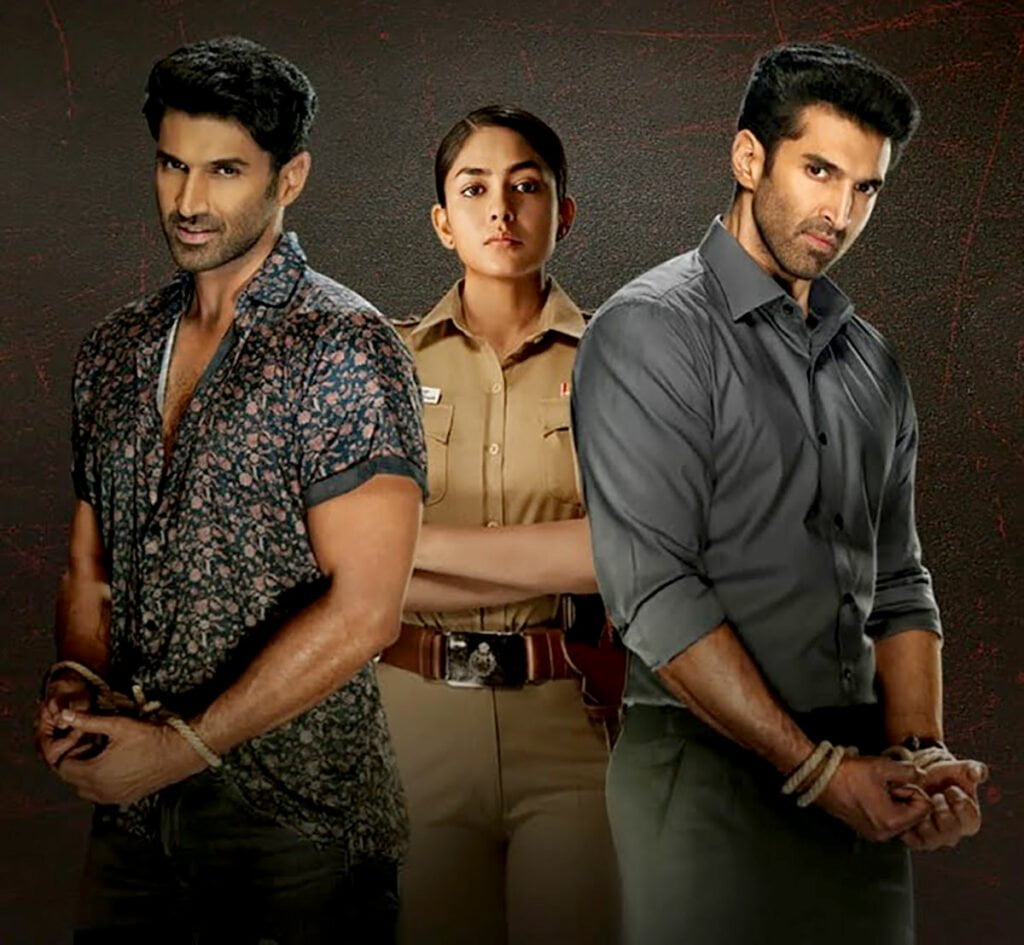
In true Bollywood fashion, the trope of the twin brothers entirely poles apart is perhaps for the first time seen outside a comical setting. As much as Arjun is likeable (perhaps overly so) Ronnie is the common, street whistle-blower who pickpockets the female cop and inappropriately winks at her during the investigation.
Gumraah ends with justice undelivered, at least as the Constitution demands it. Redemptive justice, however, makes Gumraah bring both characters in complete arcs with Arjun leaving town and Ronnie giving up his hooligan ways.
SI Mathur’s suspicion, therefore, reaches her threshold, forcing her to make a fatal mistake: making a judgment before she makes an arrest.
Convinced of Ronnie’s guilt, and consequently Arjun’s innocence, she fabricates evidence that does not exist in support of the latter, leading the court to acquit both due to insufficient evidence. Gumraah ends with justice undelivered, at least as the Constitution demands it. Redemptive justice, however, makes Gumraah bring both characters in complete arcs with Arjun leaving town and Ronnie giving up his hooligan ways.
The female cop syndrome
The motive for the murder remains undiscovered until, much like a game of cards, the dealt hands are finally unveiled. The audience finally realises where the film gets its name: in a desperate bid to save his brother, Ronnie purposefully misled (in hindi, gumraah karna) the police to strengthen the suspicion of himself. He especially targets SI Mathur, easily sensing her instant dislike for him. He instinctively knows what buttons to press in order to ensure her hatred even further, almost as if expecting nothing better from a female cop.
All this while, SI Mathur’s underbaked and unexplored character shoots thinly-veiled confused looks at the two brothers. In the wake of this manipulation, the two protagonists delve into long-repressed details of their childhood, even though the facts don’t entirely match up.
The two brothers are, in reality, well aware of each others’ existence but stay away from one another as much as possible, owing to childhood differences that run too deep to be resolved. They talk about a gambling mother, a disciplinarian father and a messy divorce that leaves the former in shambles, but their versions are coloured with the sides they have decided to pick, one sympathetic to the mother and the other who thinks the father did the best he could.
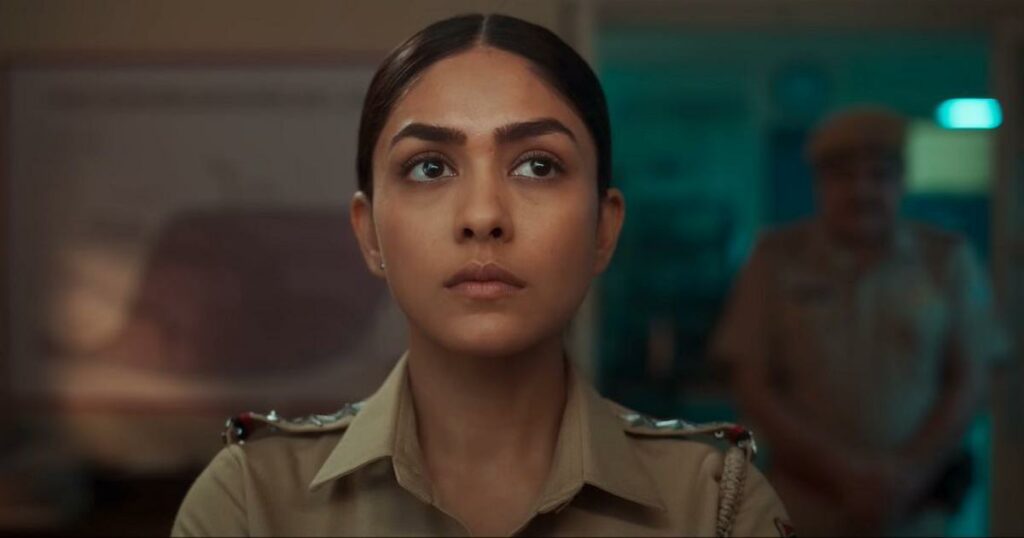
Gumraah is slow to unravel this retrospective study, however, only choosing to reveal the facts it deems convenient at the time. Poor writing leaves the audience confused and agitated for the first half of the film, while the latter half of Gumraah then becomes overly drawn out, even boring to the spectator.
A love interest long forgotten
Slow as it is, the plot begins to get more and more intricate as Arjun’s romantic life enjoys a sufficient amount of time on screen with seemingly no connection to the case. Complete with a meet cute in the elevator, an intricate song sequence with its own montage, a made-in-heaven match and even the coveted airport confession, Arjun and Jahnvi are all set to get married. Midway, however, she suddenly disappears from the plot, only to be revealed at the very end.
What was obvious to the audience is once again driven home; that Janhavi and her relationship with Arjun were no more than a desperate bid to further the plot and establish the motive that had previously evaded the audience.
The climax of the film finally brings Janhavi back on screen as SI Mathur unearths a long-forgotten missing report, filed by none other than Arjun himself. Janhavi had left the screen claiming to leave to attend a college reunion and then visit her mother in Dubai, but it seems that she overstayed her absence, perhaps for good reason too.

Janhavi had first, been kidnapped then brutally drugged and raped, and then finally murdered by an ex-boyfriend she met at said party. Lo and behold! Who does this ex turn out to be other than the dead body that prompted this investigation in the first place?
Aakash Sardana had then, obvious now to the audience and SI Mathur alike, been killed by Arjun Sehgal, the initial prime suspect, all along. Her judgment then, is under direct scrutiny under the harsh gaze of the audience who then perhaps blames her sensitivity towards the suspect as the reason why the case remains unsolved.
Bollywood’s treatment of the strong female lead
Gumraah’s female cop-led investigation ends with a limelight of censure shining brightly upon her. This image is only slightly redeemed when the film hastily turns into a revenge plot in a futile attempt to avenge the then-dead Janhavi’s torture at the hands of a crazed ex. The final message of the film, of course, is completely different, as Arjun and Ronnie, with a newfound respect for one another, part ways with a pseudo-mended relationship.
This does little to deter the subliminal messaging in the film itself, where SI Mathur appears incompetent as a cop, constantly demeaned by her own team and easily falling prey to the manipulation of a college drop-out. To make matters worse, SI Mathur bears the brunt of a barrage of sexist comments and sexual innuendos, even (and especially) while on duty that all go unaddressed, brushed under the carpet casually in order to continue the ‘nail-biting,’ investigation.
As unsatisfactory as this end is, what leaves us even more disturbed is the treatment of a trope that had seemed to bring with it definitive promise within the genre. A recent article by Vogue India goes into detail about what it calls the sub-genre of the lady-cop-led police investigation and what the common theme underlying this tropism could come to mean.
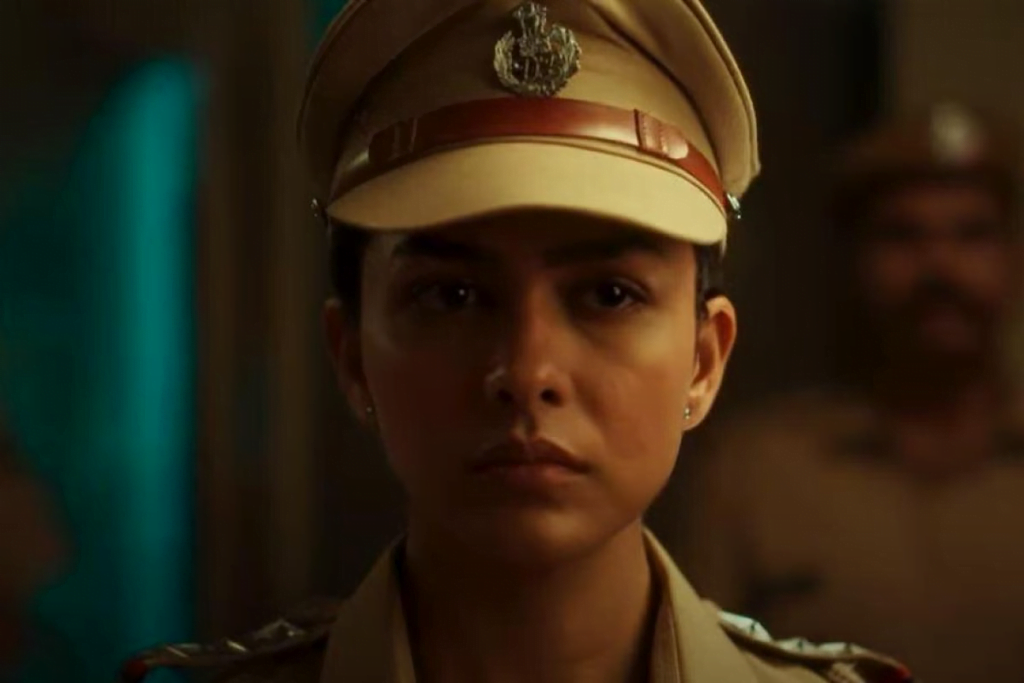
Less violent and more nuanced, women in positions of power, especially those in the police force had off-lately enjoyed powerful roles that did much more than become supporting actors in their own films. SI Shivani Mathur’s character is perhaps capable of even less than the writer intended, not only just dry and forgettable but perhaps pushed into headlights that are more condemning than empowering.
One can only wonder what a Bollywood-watching audience is to think about its general treatment of female characters, either pivotal plot points that exist for male protagonists or easily manipulatable creatures to become the scapegoat for the sake of a larger message. In the times of Dahaad and Kathal, Gumraah is perhaps more misled than it claims to mislead.
About the author(s)
Ananya is a 20-year-old student at Ashoka University, in love with all things literature. She makes great decisions when it comes to movie nights but with life? Not so much.
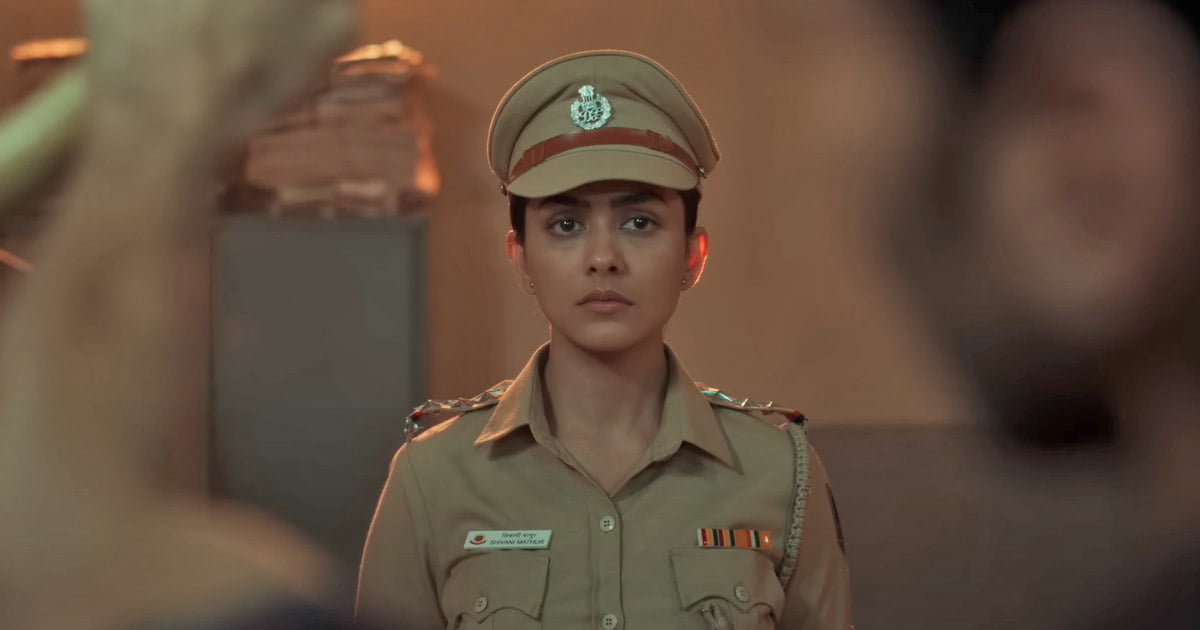


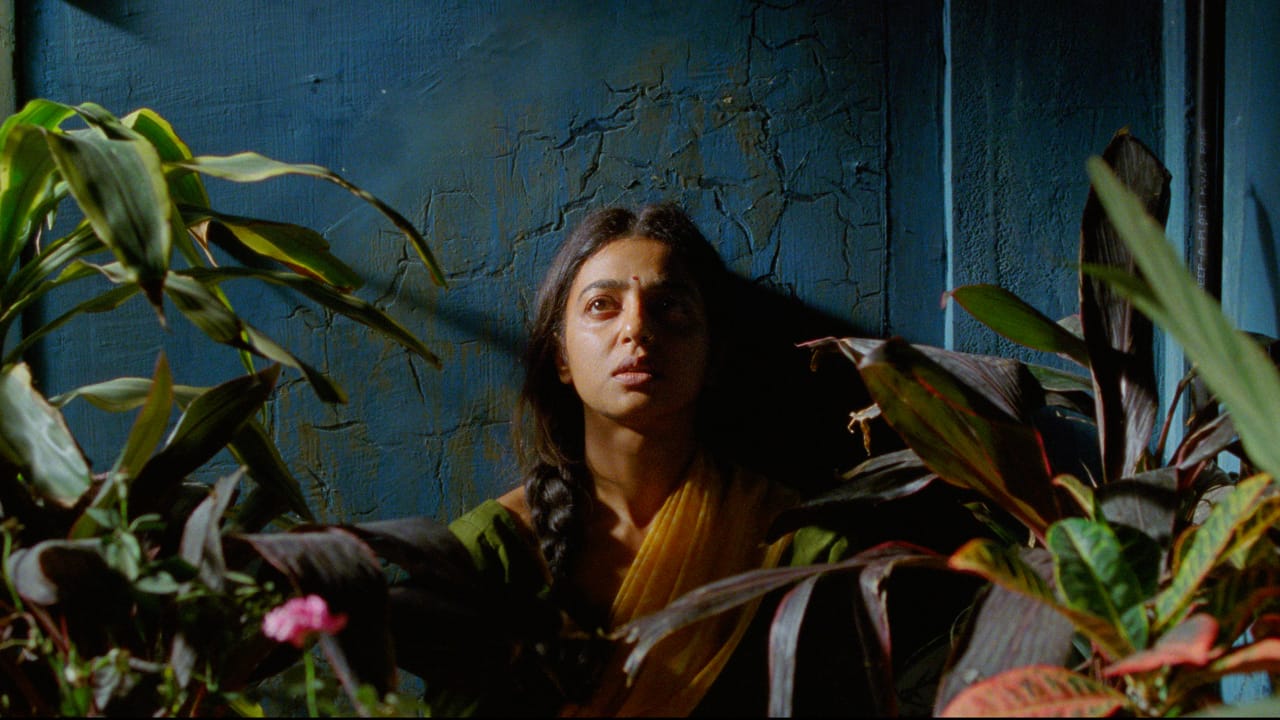


Woohoo another very well written piece Ananya! So proud of you!
Very well researched and portrayed ,love the end”Gumraah is perhaps more misled than it claims to mislead. “.
Very well articulated. Liked your point of view on female cops.
Awesome way to present your perspective. Absolutely loved your writing .
Fantastic piece!
Well described
intense piece I love the ananlysis!
Never looked at this trope this way, thanks for bringing in a fresh perspective 😊
Well researched and equally well written article. Fantastic!!!
Wow, what an incredible movie review! The way you eloquently expressed your thoughts and feelings about the film truly captured my attention from start to finish. Your writing style is well engaging and descriptive, making me feel like I was right there experiencing the movie.